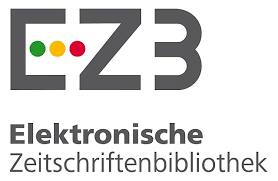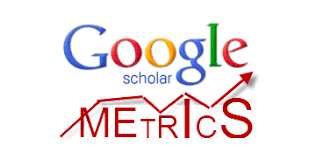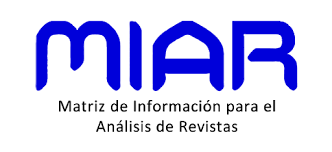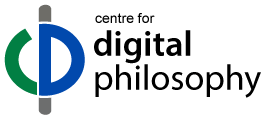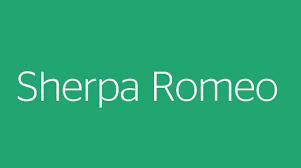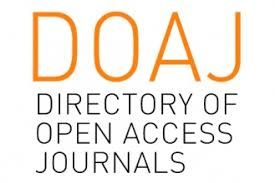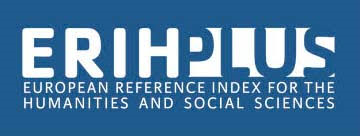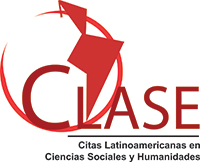Equilíbrio Reflexivo, Intuições Morais e a Busca por Coerência
DOI:
https://doi.org/10.15448/1984-6746.2018.3.30820Palavras-chave:
Equilíbrio Reflexivo, Intuições Morais. Modelo Coerentista. Modelo Intuicionista.Resumo
Como devemos conduzir nossas investigações morais para decidir no que acreditar sobre questões morais? Como a plausibilidade de juízos, teorias e princípios morais deve ser avaliada? Como devemos tentar remover nossas dúvidas quando estamos incertos sobre o que é certo ou errado, bom ou mau, justo ou injusto? O método do equilíbrio reflexivo, desenvolvido por John Rawls em A Theory of Justice (1971) e desde então adotado por um crescente número de filósofos, é uma tentativa de responder a questões como essas. O equilíbrio reflexivo pode ser (e de fato foi) interpretado de vários modos, muitos dos quais completamente incompatíveis entre si, mas as duas visões mais representativas do método são os modelos coerentista e intuicionista. Neste artigo o meu objetivo é argumentar que nós deveríamos entender o equilíbrio reflexivo como um método intuicionista de investigação moral. Assim, eu comparo essas duas visões, como elas diferem no modo como concebem o funcionamento e os objetivos do método, para defender que a tradição coerentista de interpretação do método reduz a investigação moral a uma mera busca por coerência, com isso ignorando a função metodológica (e epistemológica) que intuições morais desempenham em nossas reflexões morais. Em contraste, a interpretação intuicionista oferece um modelo de investigação que integra intuição morais com a busca por coerência, explicando por que e como esses dois elementos funcionam em conjunto em nossas reflexões morais. A minha alegação é a de que apenas quando o equilíbrio reflexivo é interpretado de acordo com esse modelo intuicionista que ele pode ser visto em uso na prática reflexiva de filósofos morais reconhecidamente competentes, como John Rawls, Judith Jarvis Thomson e Peter Singer.
Downloads
Referências
AUDI, Robert. The Good in the Right: A Theory of Intuition and Intrinsic Value. Princeton: Princeton University Press, 2004. DOI: https://doi.org/10.1515/9781400826070
BOYD, Richard. How to be a Moral Realist. In: SAYRE-MCCORD, Geoffrey. Essays on Moral Realism. Ithaca: Cornell University Press, 1988. p. 181-228.
BRINK, David. Moral Realism and the Foundations of Ethics. New York: Cambridge University Press, 1989. DOI: https://doi.org/10.1017/CBO9780511624612
DANIELS, Norman. Justice and Justification: Reflective Equilibrium in Theory and Practice. Cambridge: Cambridge University Press, 1996. DOI: https://doi.org/10.1017/CBO9780511624988
_____. Reflective Equilibrium. In: EDWARD, Zalta (ed.). The Stanford Encyclopedia of Philosophy, 2011. Disponível em:
plato.stanford.edu/archives/spr2011/entries/reflective-equilibrium.DEPAUL, Michael. Methodological
Issues: Reflective Equilibrium. In: MILLER, Christian (ed.). The Continuum Companion to Ethics. London: Continuum, 2011. p. lxxv-cv.
_____. Intuitions in Moral Inquiry. In: COPP, David (ed.). The Oxford Handbook of Ethical Theory. Oxford: Oxford University Press, 2006. p. 595-623. DOI: https://doi.org/10.1093/0195147790.003.0022
EBERTZ, Roger. Is Reflective Equilibrium a Coherentist Model? Canadian Journal of Philosophy, v. 23, n. 2, p. 193-214, 1993. DOI: https://doi.org/10.1080/00455091.1993.10717317
FOOT, Philippa. Virtues and Vices and Other Essays in Moral Philosophy. Oxford: Clarendon Press, 2002.
GOODMAN, Nelson. Fact, Fiction and Forecast. Fourth Edition. Cambridge: Harvard University Press, 1983.
GREENE, Joshua. Moral Tribes: Emotion, Reason, and the Gap Between Us and Them. New York: The Penguin Press, 2013.
_____. Beyond Point-and-Shoot Morality: Why Cognitive (Neuro)Science Matters for Ethics. Ethics, v. 124, n. 4, p. 695-726, 2014. DOI: https://doi.org/10.1086/675875
KELLY, Thomas; MCGRATH, Sarah. Is Reflective Equilibrium Enough?. Philosophical Perspectives, v. 24, p. 325-359, 2010. DOI: https://doi.org/10.1111/j.1520-8583.2010.00195.x
HOOKER, Brad. Ideal Code, Real World: A Rule-Consequentialist Theory of Morality. Oxford: Clarendon Press, 2003. DOI: https://doi.org/10.1093/0199256578.001.0001
HUEMER, Michael. Ethical Intuitionism. New York: Palgrave Macmillan, 2005. DOI: https://doi.org/10.1057/9780230597051
______. Singer's Unstable Meta-ethics. In: SCHALER, Jeffrey (ed.). Peter Singer Under Fire: The Moral Iconoclast Faces His Critics. Chicago: Open Court, 2009. p. 359-379.
MCMAHAN, Jeff. Moral Intuition. In: LAFOLLETE, Hugh (org.). The Blackwell Guide to Ethical Theory. Second Edition. Oxford: Blackwell Publishers, 2013. p. 103-120. DOI: https://doi.org/10.1111/b.9780631201199.1999.00007.x
PUST, Joel. Intuition as Evidence. New York: Garland Publishing, 2000.
_____. "Intuition", The Stanford Encyclopedia of Philosophy (Summer 2017 Edition), Edward N. Zalta (ed.), URL =
https://plato.stanford.edu/archives/sum2017/entries/intuition/.
RAWLS, John. A Theory of Justice. Revised Edition. Cambridge Harvard University Press, 1999. DOI: https://doi.org/10.4159/9780674042582
_____. Outline of a Decision Procedure for Ethics. The Philosophical Review, v. 60, n. 2, p. 177-197, 1951. DOI: https://doi.org/10.2307/2181696
_____. Political Liberalism. New York: Columbia University Press, 1993.
____. Reply to Habermas. The Journal of Philosophy, v. 92, n. 3, p. 132-180, 1995. DOI: https://doi.org/10.5840/jphil199592336
____. The Independence of Moral Theory. Proceedings and Addresses of the American Philosophical Association, v. 48, p. 5-22, 1975. DOI: https://doi.org/10.2307/3129858
SCANLON, Thomas. Being Realistic about Reasons. Oxford: Oxford University Press, 2014. DOI: https://doi.org/10.1093/acprof:oso/9780199678488.001.0001
_____. Rawls on Justification. In: FREEMAN, Samuel (Ed.). The Cambridge Companion to Rawls. Cambridge: Cambridge University Press, 2003. p. 139-168. DOI: https://doi.org/10.1017/CCOL0521651670.004
SINGER, Peter. Ethics and Intuition. The Journal of Ethics, v. 9, p. 331-352, 2005. DOI: https://doi.org/10.1007/s10892-005-3508-y
_____. Practical Ethics. Second Edition. Cambridge: Cambridge University Press, 1993.
SINNOT-ARMSTRONG, Walter. Moral Skepticisms. Oxford: Oxford University Press, 2006. DOI: https://doi.org/10.1093/0195187725.001.0001
STREET, Sharon. Constructivism about Reasons. In: SHAFER-LANDAU, Russ (org.). Oxford Studies in Metaethics: Volume 3. Oxford: Oxford University Press, 2008. p.207-245.
TERSMAN, Folke. Utilitarianism and the Idea of Reflective Equilibrium. Southern Journal of Philosophy, v. 29, n. 3, p. 395-406, 1991. DOI: https://doi.org/10.1111/j.2041-6962.1991.tb00599.x
_____. Reflective Equilibrium: An Essay in Moral Epistemology. Stockholm: Almqvist & Wiksell International, 1993.
TRAMEL, Peter. Moral Epistemology. In: The Internet Encyclopedia of Philosophy. Disponível em:
http://www.iep.utm.edu/mor-epis/.
THOMSON, Judith. Killing, Letting Die, and the Trolley Problem. Monist, v. 59, n. 2, p. 204-217, 1976. DOI: https://doi.org/10.5840/monist197659224
_____. The Realm of Rights. Cambridge: Harvard University Press, 1990.
_____. The Trolley Problem. The Yale Law Journal, v. 94, n. 6, p. 1395-1415, 1985. DOI: https://doi.org/10.2307/796133
_____. Turning the Trolley. Philosophy & Public Affairs, v. 36, n. 4, p. 359-374, 2008. DOI: https://doi.org/10.1111/j.1088-4963.2008.00144.x
TIMMONS, Mark. Morality without Foundations: A Defense of Ethical Contextualism. Oxford: Oxford University Press, 1999.






